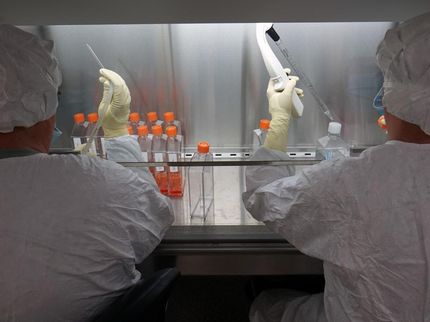Viron reports positive Phase II data in Acute Coronary Syndromes (ACS) patients
Viron Therapeutics Inc. reported results from a Phase IIa clinical trial evaluating VT-111 (Serp-1), an anti-inflammatory protein derived from the Myxoma virus. The results were presented by Dr. Jean-Claude Tardif, Director of the Research Centre at the Montreal Heart Institute, during the Scientific Sessions of the American Heart Association (AHA) 2009 conference. VT-111 met both primary and secondary endpoints of the trial, which was designed to evaluate the safety and biological activity of VT-111 in Acute Coronary Syndrome (ACS) patients receiving coronary stents.
"The positive safety and efficacy data from this trial provide a strong scientific rationale for moving forward with this novel drug in ACS and potentially other indications," said Dr. Tardif. "There were also no subsequent major adverse cardiac events in the high dose group, which correlates well with VT-111's impact on two prognostic cardiac biomarkers, Troponin I and CK-MB, whose predictive value have been demonstrated in other studies. It may also be possible for VT-111 to have an even greater impact if delivered in a larger dose than the low dose of 15 micrograms per kilogram ((micro)g/kg) tested in this trial."
In this double-blind, placebo-controlled Phase IIa trial, 48 patients received intravenous doses of placebo or VT-111 once daily for three days starting immediately before their stenting procedure. Subjects were then followed for three days in the hospital and returned at two weeks, four weeks, three months, and six months for evaluation of safety and a variety of inflammatory and cardiac biomarkers.
A statistically significant, dose-dependent reduction in levels of the cardiac damage biomarker Troponin I was associated with VT-111 treatment at eight, 16, 24, and 54 hours following the initial dose. The VT-111 treated patients also showed a statistically significant reduction in the cardiac damage biomarker creatine kinase myocardial biomarker (CK-MB) at eight, 16, and 24 hours. VT-111 also showed strong trends toward reducing Major Adverse Cardiac Events (MACE, a clinical endpoint comprised of myocardial infarction, revascularization, coronary artery bypass graft (CABG) or death) in the higher dose group, with no MACE events at the six month follow-up, compared to the placebo group, which had (greater than)18% MACE.
Previously published studies have shown that a reduction in the rise of Troponin I and/or CK-MB in the first 24 hours after stent placement is predictive of whether a patient will experience a subsequent clinical event.
The study showed no difference between the treatment and placebo groups for the key safety measures, including coagulation markers and adverse events. In-stent plaque area and lumen area, as assessed by intravascular ultrasound at six months, were similar for both groups. VT-111 demonstrated no drug-related adverse events and no neutralizing antibodies (low immunogenicity) in the patient population.
Other news from the department research and development
Most read news
More news from our other portals
See the theme worlds for related content
Topic world Antibodies
Antibodies are specialized molecules of our immune system that can specifically recognize and neutralize pathogens or foreign substances. Antibody research in biotech and pharma has recognized this natural defense potential and is working intensively to make it therapeutically useful. From monoclonal antibodies used against cancer or autoimmune diseases to antibody-drug conjugates that specifically transport drugs to disease cells - the possibilities are enormous

Topic world Antibodies
Antibodies are specialized molecules of our immune system that can specifically recognize and neutralize pathogens or foreign substances. Antibody research in biotech and pharma has recognized this natural defense potential and is working intensively to make it therapeutically useful. From monoclonal antibodies used against cancer or autoimmune diseases to antibody-drug conjugates that specifically transport drugs to disease cells - the possibilities are enormous






















































